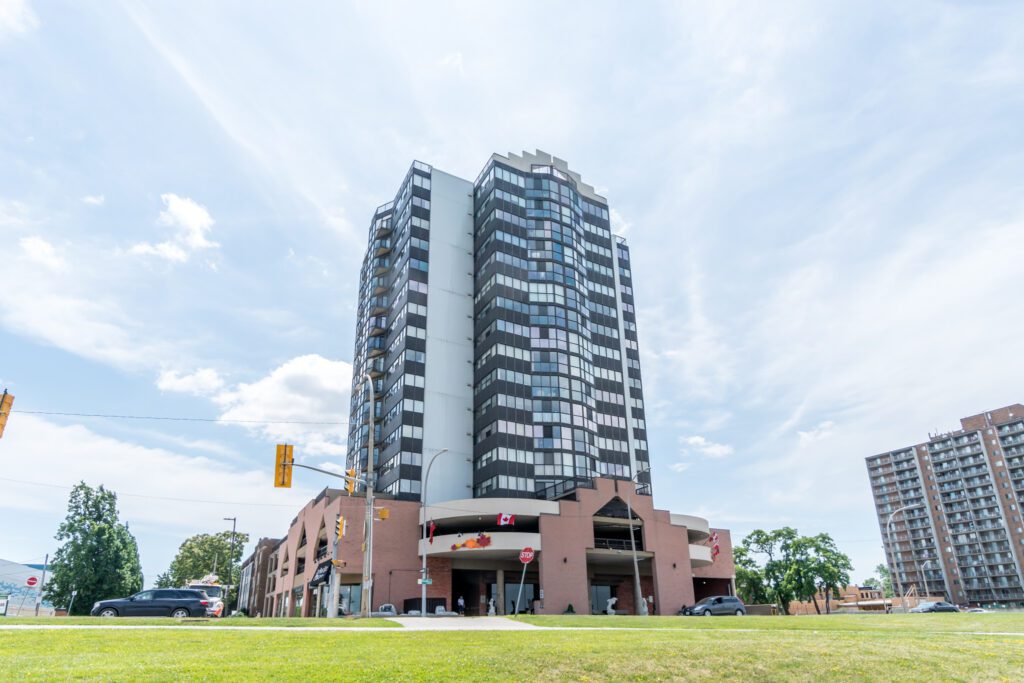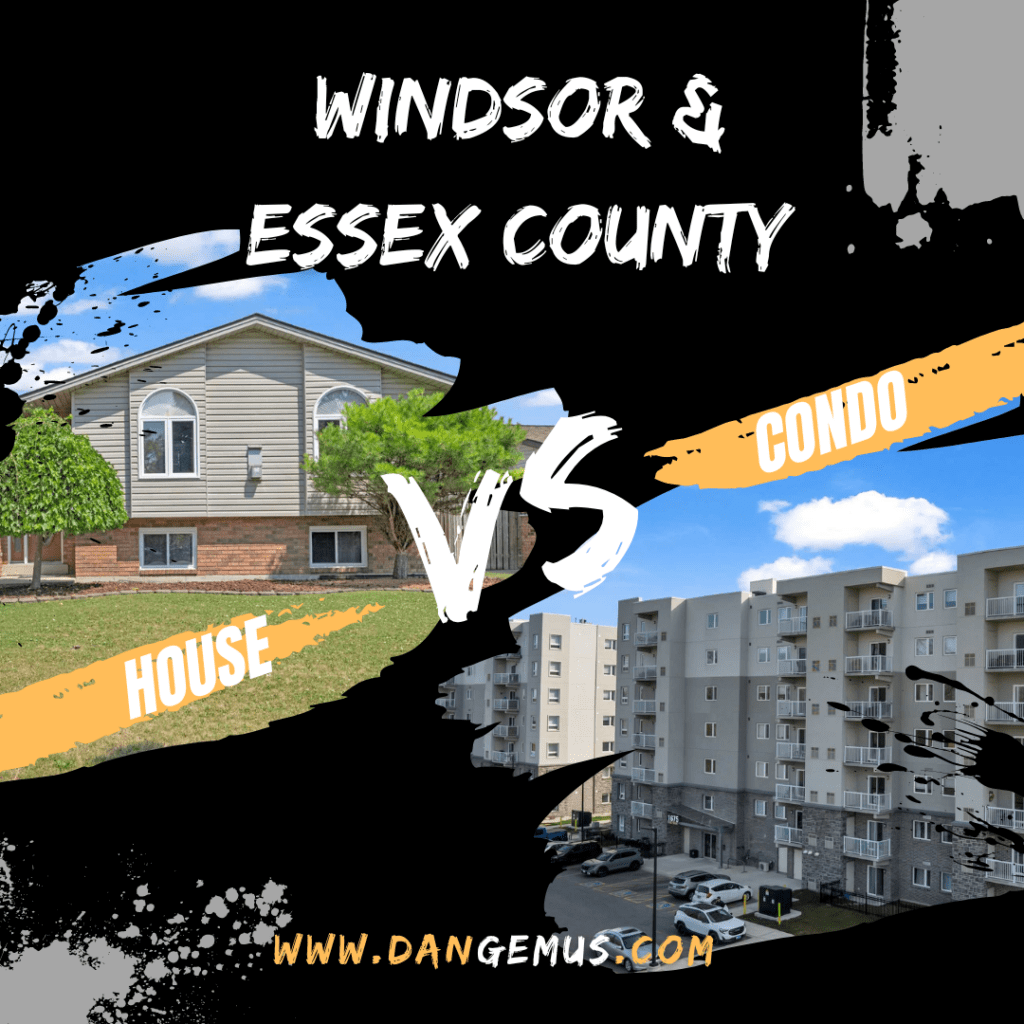
Special Assessments, Status Certificates, Reserve Funds, and Condo Fees
Buying a condominium in Windsor-Essex County, or anywhere in Ontario, comes with unique responsibilities and costs that differ from owning a single-family home. Among the most important (and sometimes confusing) concepts are special assessments, status certificates, reserve funds, and condo fees. While they all connect to the financial health of a condo corporation, each plays a different role. Understanding them can help you avoid surprises and make more informed decisions when purchasing or owning a condo.
1. What are Condo Fees?
Every condo owner pays monthly condo fees (sometimes called maintenance fees). These fees are pooled together to cover the ongoing operation of the building and upkeep of the common areas.
Condo fees typically cover:
-
Building insurance
-
Cleaning and maintenance of common spaces (hallways, lobbies, landscaping, snow removal, etc.)
-
Utilities for shared areas (sometimes even heat, hydro, or water for individual units depending on the building)
-
Contributions to the reserve fund for long-term repairs
Example: In downtown Windsor high-rises, condo fees often include heating, cooling, and building amenities like gyms or pools. In Tecumseh or LaSalle townhome-style condos, fees might be lower and focused more on landscaping, snow removal, and exterior maintenance.
-
Why it matters: A building with low condo fees might sound appealing, but if those fees don’t adequately support the reserve fund and maintenance costs, owners may be at higher risk for future special assessments.
2. What is a Special Assessment?
A special assessment is an unexpected charge that the condo board issues to owners when the reserve fund doesn’t have enough money to cover major repairs or expenses.
For example, if a building suddenly requires a new roof or major elevator repairs, but the reserve fund falls short, each unit owner may be required to pay their share of the cost through a special assessment.
Example: If a condo in Amherstburg suddenly requires a major window replacement, but the reserve fund falls short, each unit owner may be required to pay their share of the cost through a special assessment.
-
Why it matters: Special assessments can be costly, ranging from a few thousand to tens of thousands of dollars. Reviewing a building’s financial health can help you anticipate whether this risk is likely.
3. What is a Status Certificate?
A status certificate is essentially the report card for a condo unit and the condo corporation. In Ontario, it’s a legal document that provides details on the unit you’re buying and the financial and legal standing of the corporation.
It includes:
-
The current budget and reserve fund balance
-
Any upcoming special assessments
-
The unit owner’s condo fee payment history
-
Legal issues or lawsuits involving the corporation
👉 Important to know: If you are purchasing more than just a condo unit (for example, a parking space, garage or storage locker), these may be held under separate ownership and require their own status certificates. This ensures you know the legal and financial details for each part of what you’re buying. Be sure to confirm this before you offer so you know what you’re buying.
-
Why it matters: When purchasing a condo, your lawyer will carefully review the status certificate to help you understand the building’s financial stability and your obligations as an owner.
4. What is a Reserve Fund?
The reserve fund is the condo corporation’s savings account. Every month, a portion of owners’ condo fees goes into this account to cover long-term repairs and replacements of common elements like roofs, windows, parking lots, and mechanical systems.
Ontario law requires that condo corporations complete regular reserve fund studies to determine how much money should be saved.
-
Why it matters: A healthy reserve fund reduces the risk of special assessments. If a condo building consistently underfunds its reserve, owners may face unexpected costs down the road.
How They All Work Together
-
Condo fees are the monthly contributions that cover day-to-day operations and savings.
-
The reserve fund is the savings account built from condo fees for major repairs.
-
The status certificate is the disclosure document that reveals the financial and legal health of the condo corporation (and any additional property you purchase, such as parking or recreation).
-
A special assessment is the last resort when the reserve fund doesn’t have enough to cover expenses.
Final Thoughts
Condo living offers convenience and lifestyle benefits, but it also requires understanding the financial framework behind the scenes. Before buying, always review the status certificate with your lawyer, pay attention to the strength of the reserve fund, and make sure you’re clear on what your condo fees cover. Doing so can help protect you from costly special assessments and give you confidence in your investment.
At The Dan Gemus Real Estate Team, we specialize in guiding buyers through every step of the condo-buying process in Windsor-Essex. From reviewing documents to explaining financial implications in plain language, we’re here to make sure your purchase is a confident and informed one. Reach out to our team for professional representation and guidance anywhere in the Windsor and Essex County region. You can also call us 519-566-5565 , find us online at www.DanGemus.com, or tune into The Dan Gemus Real Estate Show on AM800 CKLW every Saturday and Sunday between 12-1pm for practical tips, advice and Windsor and Essex County market updates.
This blog is not intended to replace professional legal, tax, or financial advice, nor is it intended to solicit those currently under contract with another Brokerage.

